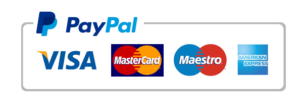Privacy, Security, and Ethics Program Transcript
Privacy, Security, and Ethics
Privacy, Security, and Ethics Program Transcript
SUZANNE PAONE: Unfortunately, we do have leaders in health care who come from backgrounds where they’ve never dealt with security and privacy and data security issues. And there’s an opportunity there. There’s an educational opportunity to help leaders understand how they have to focus on this topic and invest in this topic.
[MUSIC PLAYING]
SUZANNE PAONE: Health care data are alike other fields and different than other fields. Health data contain demographics, for instance– social security numbers, birth dates, addresses. However, health care also contains sensitive clinical information, as we know– so a person’s laboratory records, for example, or something that, if compromised, have a different impact on that individual than purely a financial impact.
There are also issues related to the volume of data now in that as hospitals and physicians automate, more and more health care data is available. So therefore, bad actors are placing more emphasis on possibly trying to exploit health care data because of the popularity of automating health care systems today.
Securing data and making data available to consumers is a balancing act. And other industries have come ahead of health care in doing this. If people want their data, it is their data. And we have to provide that data to them in as ethical and secure manner as possible, much like banking or any other industry, frankly.
GRANT SHEVCHIK: Patients are looking more and more for convenient health care. And one of the things that they’re doing is looking to be able to have visits online. Along with that though comes the aspect of, how do you keep all that private? While they’re online, while it’s taking place, how do you build a firewall? Where do you store this data? Where do you keep the information?
That is a new challenge, which a lot of other places have, again, dealt with. The banking business is doing that now. We need to be aware of that. But again, our situation is unique because we have medical diagnoses linked to it.
SUZANNE PAONE: Leaders need to take steps in ensuring that proper resources are available, such as technical resources to provide firewalls, technical network security, secure servers, and the staff that are needed to ensure that those technical aspects are in place.
Leaders also need to work with marketing organizations, or operations in their organizations, to ensure that the consumers doing those online activities
© 2018 Laureate Education, Inc. 1
Privacy, Security, and Ethics
understand how to do them appropriately, how to set up their accounts appropriately, how to change their passwords, why that sort of thing is important.
GRANT SHEVCHIK: One of the other things to consider from an ethical standpoint is that in all businesses, people fudge things. It happens all the time. And medicine is no different. And sometimes a diagnosis is attached to a patient to get a bill covered for a service that was provided because insurance companies will only pay for certain services if you have certain diagnoses.
Unfortunately, what happens in medicine is that diagnosis stays with that patient. So for example, you could attach congestive heart failure to a patient, and that sticks with them. It really creates a hassle for that patient because they now have a diagnosis which alerts– sets off a lot of bells and whistles at insurance companies, at hospitals, at whatever, when you come in and have congestive heart failure.
So this is taking place. A lot of people are not aware of it. And when you discover that, if you do in your organization, I would encourage you, from a leadership standpoint, to make sure that you make that practice disappear.
SUZANNE PAONE: When we collect information about people’s behavior patterns, such as smoking or alcohol intake, that information is stored in a secure database. And we have questions about, how is that information used? If that information is used to exclude certain populations from access to care for financial purposes, what are the ethical implications of doing that?
And so one of the challenges that we find in the industry is some of these questions are not answered at a policy level. So we’re collecting data, we’re securing data, and we have different stakeholders interested in both financial and clinical aspects of what to do with that data. And it does raise some very interesting ethical questions for our society.
My advice when we talk about privacy and security as it relates to health data is, take it seriously, number one. Don’t wait until there’s an incident to be thoughtful about this topic. Like we lead and manage in other areas of health care, whether it be finance or operations or marketing, this should be a proactive part of your strategic management plan, like any other part of running your organization.
So being proactive, being thoughtful, and not waiting until an incident occurs is my recommendation to every leader in the industry.
[MUSIC PLAYING]
© 2018 Laureate Education, Inc. 2
Privacy, Security, and Ethics
Privacy, Security, and Ethics Additional Content Attribution
FOOTAGE: GettyLicense_155871673.mov [benlynn]/[Vetta]/Getty Images
GettyLicense_113744609_h8.mov [Paunescu Cristian]/[Vetta]/Getty Images
GettyLicense_184073462.mov nmlfd/Creatas Video/Getty Images
GettyLicense_187137137.jpg [Ariel Skelley]/[Blend Images]/Getty Images
GettyLicense_457541267.mov nmlfd / Creatas Video+ / Getty Images Plus / Getty Images
WAL_MMHA6520_DynamicProformaDevelopmentModel_ScreenShot.png Suzanne Paone. (n.d.). Copy of IT PROFORMA Template_2.0.xls_sent to LE 111117.xls. Used with permission of Suzanne Paone.
© 2018 Laureate Education, Inc. 3
Do you need a similar assignment done for you from scratch? We have qualified writers to help you. We assure you an A+ quality paper that is free from plagiarism. Order now for an Amazing Discount!
Use Discount Code "Newclient" for a 15% Discount!
NB: We do not resell papers. Upon ordering, we do an original paper exclusively for you.


